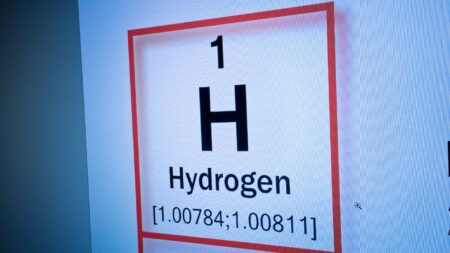As part of a larger road plan that officials described as crucial to cutting emissions in industrial sectors including energy, transportation, steel, and cement, the Energy Department has invited proposals for $7 billion to create up to 10 regional hydrogen centers.
During the Energy Department’s Clean Energy Ministerial and Global Clean Energy Action Forum in Pittsburgh, where elected officials and business leaders discussed hydrogen’s role in achieving climate goals, the hub program—established by Congress in the infrastructure bill passed last November—was unveiled.
Energy Secretary Jennifer Granholm announced the department’s hydrogen goals to an audience of approximately 4,000 people from 35 nations assembled at the David L. Lawrence Convention Center. “We’re not only here to speak, but to take meaningful actions in our march toward a clean energy future,” she said.
According to David Turk, deputy secretary of energy, hydrogen is a flexible energy source that can be utilized to clean up challenging-to-decarbonize industries and achieve climate objectives of net-zero greenhouse gas emissions in the power sector by 2035 and across the U.S. economy by 2050. Hydrogen is an odorless, colorless gas that when utilized in a fuel cell only produces water as a byproduct.
One of the biggest expenditures in DOE history is being made in what Turk called “a generational opportunity.” No portion of the infrastructure package has garnered more interest and attention than the hydrogen hubs provision.
States are both partisan and interested in hydrogen. This week, a coalition of Midwestern governors was established with the goal of advancing hydrogen as an alternative energy source to support the region’s decarbonization initiatives.
Regional Centers
The department intends to choose at least four regional hubs, at least one of which will be a “green” hydrogen project powered by renewable energy, one “blue” hydrogen project powered by natural gas and utilizing carbon capture and storage, and one “pink” hydrogen project powered by nuclear energy.
According to Kelly Cummins, acting director and principal deputy director for the Office of Clean Energy Demonstrations, which is in charge of running the program, the department is looking for geographic diversity and anticipates applications from a wide range of stakeholders involved in the hydrogen industry, including businesses, government organizations, producers and consumers, pipelines, and transportation firms.
According to Cummins, no significant adjustments were made to the department’s hydrogen hub plan since a notice of intent was published in June. Full applications are due on April 7, 2023, while concept papers are due on November 7, 2022.
A draft of the National Clean Hydrogen Strategy and Roadmap was also made available by the government for public comment. According to a news release from the government, the roadmap gives a general overview of how hydrogen may “help to national decarbonization and economic growth goals.”
The plan and roadmap will be finalized soon and modified at least every three years after that.
As the business is set to expand thanks to a hydrogen tax credit established by the climate and tax law enacted by Congress last month, the hub program was pushed.
The growth
At a hydrogen business meeting on Thursday in Pittsburgh, representatives talked about expanding the infrastructure.
In order to achieve the Energy Department’s “1-1-1” target of bringing down the price of clean hydrogen by 80% to $1 per kilogram in ten years, participants discussed the significance of public-private partnerships.
John Kerry, the special presidential envoy on climate change, told a crowded gathering in the David L. Lawrence Convention Center that “it’s doable—for years, we simply haven’t been paying attention to it.” “People recognize that this is a new period, which is why this place is filled, in my opinion.”
Participants at the meeting agreed that the transportation of hydrogen will be crucial. The Federal Energy Regulatory Commission, which presently oversees interstate natural gas pipelines, would be in charge of regulating hydrogen pipelines under Sen. Joe Manchin’s (D-W.Va.) permitting overhaul legislation, which was presented on Wednesday.
Turk asserted that the Biden administration was mindful of the concerns of environmental justice groups on the potential negative local effects and greenhouse gas emissions of hydrogen.
Turk stated, “We are doing this in a comprehensive, thorough, environmental integrity approach,” and added that he has spoken with advocacy organizations and local authorities. Turk most recently met with the Environmental Defense Fund to discuss how to define clean hydrogen.








